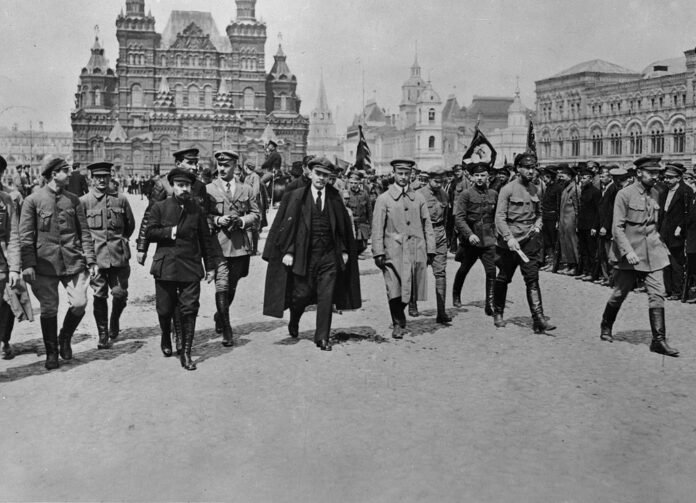The Russian Revolution of 1917 was a watershed moment in history, ushering in a new order and overthrowing the Romanov dynasty. In this examination, we will look at the events surrounding the revolution, including the rise of the Bolsheviks, the formation of the Red Army, and the subsequent overthrow of the Tsarist state.
Prelude to Revolution
The Russian Revolution arose as a result of socioeconomic inequality and political dissatisfaction in Russia in the early twentieth century. The country’s involvement in World War I worsened these concerns, allowing revolutionary impulses to grow.
The February Revolution
The unrest of the Russian people culminated in the February Revolution of 1917. Tsar Nicholas II abdicated following widespread protests and strikes, bringing an end to centuries of Romanov monarchy. A Provisional Government was formed, but the stage was set for more turbulence.
Rise of the Bolsheviks

Following the February Revolution, the Bolsheviks, led by Vladimir Lenin, rose to prominence. Their motto “Peace, Land, and Bread” appealed to the war-weary and famine-stricken masses. The Bolsheviks planned the October Revolution in October 1917 (Julian calendar), seizing major locations in Petrograd and finally gaining control of the government.
The Red Army
With the advent of Soviet authority came the construction of the Red Army, a military force that would play a critical part in the Russian Civil War. The Red Army, commanded by leaders such as Leon Trotsky, fought violent battles against counter-revolutionary troops known as the Whites, attempting to restore the old order.
Civil War and Foreign Intervention
The Russian Civil War (1918–1922) was marked by fierce fighting between the Bolshevik Red Army and the White Army, as well as various nationalist and anti-Bolshevik organisations. Foreign intervention by nations such as Britain, France, and the United States exacerbated the conflict, with opposing objectives adding to the confusion.
The Fall of the Tsarist Regime
The Russian Revolution resulted in the formal abolition of the Romanov monarchy. The execution of Tsar Nicholas II and his family in July 1918 marked the end of the Tsarist regime. The Soviet Union, led by the Bolsheviks, emerged as a new and radical political force on the world scene.
Economic and societal transformations
The Bolsheviks pursued radical economic and social measures, such as land redistribution and industrial nationalisation. These initiatives sought to demolish the old aristocratic order and construct a socialist state, drastically altering the structure of Russian society.
The Russian Revolution caused shockwaves over the world, altering political beliefs and international relations. The emergence of the Soviet Union as a socialist state with global ambitions added a new dimension to the geopolitical scene.
Perplexities in Russian Revolutionary Studies
Historians continue to conduct extensive research and debate on the Russian Revolution. The intricacies of the events before the revolution, the motivations of major actors, and the global consequences continue to perplex experts.
Burstiness in Revolutionary Ideas

The revolutionary principles that sparked the Russian Revolution had a dramatic impact on the sociopolitical landscape. The swift transition from monarchy to socialism demonstrated the explosive nature of ideological revolutions, upsetting old power structures and clearing the way for new paradigms.
Engaging the Reader with Personal Narratives
Exploring the Russian Revolution entails diving into the personal experiences of those who lived through the turbulent times. Accounts of troops, civilians, and political leaders add a human dimension to historical events, allowing for a better understanding of the problems and triumphs of the era.
Drawing analogies to recent revolutions enables us to learn from the Russian experience. The dynamics of societal upheaval, the role of ideology, and the problems of post-revolutionary rebuilding all provide useful insights into modern political debate.
The Russian Revolution and Popular Culture
The Russian Revolution had an everlasting impact on popular culture, affecting literature, film, and art. Depictions of revolutionary leaders, the Red Army, and the fall of the Tsar continue to attract audiences, ensuring that the Russian Revolution’s legacy lives on.





